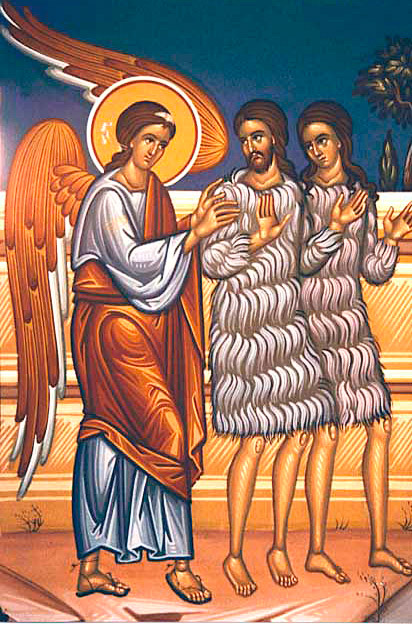
Fr. Dr. Augustine Sokolovski
The last preparatory Sunday before Great Lent is called Forgiveness Sunday. The topic for thought for believers this time is the expulsion of Adam and Paradise.
Thus ends the special, preparatory period of Great Lent. It consists of four weeks and five Sundays, the themes of which, associated with the Gospel readings at the liturgy, like the five senses, awaken the thoughts and hearts of believers to the upcoming ascetic exercise. The Sunday of Zacchaeus, the Publican and the Pharisee, the Prodigal Son, and the Sunday of the Last Judgment, and finally, the Sunday of the Expulsion of Adam. This period is extremely important, it is rich in sacred semantics, but, unfortunately, it often goes unnoticed by believers. This often happens because the focus is often on issues of food and drink (cf. 1 Cor. 6:13), missing the meaningful theological gravity of liturgical time.
During the liturgy, the text is read from the Gospel of Matthew, chapter 6, verses 14–21, where the Lord Jesus speaks about the need for forgiveness. “If you forgive people their sins, then your Heavenly Father will also forgive you, but if you do not forgive people their sins, then your Father will not forgive you your sins” (14-15). Fulfilling what is written, in the evening, after a special, now Lenten Vespers, believers ask each other for forgiveness to begin a new, repentant time for themselves and for the Church.
This unique tradition, in which the words of Scripture become the icon of the subsequent action, has two justifications, historical and dogmatic.
So, tradition says that in ancient times, before the start of Lent, the monks of Egyptian monasteries went to the desert, where they lived for 40 days without food or water. The day before, they made peace with others and asked forgiveness for all their sins. After all, everyone understood that not everyone would be able to survive subsequent hunger, thirst and other dangers. Initially, such mutual forgiveness was reminiscent of the last days and had an eschatological character. To this day it mysteriously introduces believers into the atmosphere of apostolic times when every moment was a confident expectation that the Lord Jesus would soon return.
“If you do not forgive people their sins, then your Father will not forgive you your sins,” says the Lord in the Gospel. This dependence of divine decisions on the will of man is unique to Christianity. This is not the case in other monotheistic religions.
To place or make oneself dependent on mutual human forgiveness would mean limiting the omnipotence of the Creator. But in Christianity, God is not only the Creator, but also the Father. The assertion that “God is our Father” is not just a name, but a dogma, the essence of Christian Orthodoxy.
Forgiveness Sunday, the Sunday of Forgiveness reveals to us the essence of this good news of the Lord Jesus Christ, the Self-revelation of God in accepting His people, in mutual forgiveness and blessing. Peering at the faces of Great Lent, revealed in divine services and gospel readings, we learn to understand and rejoice in the fact that God is the true future of every person and all people in Jesus Christ.